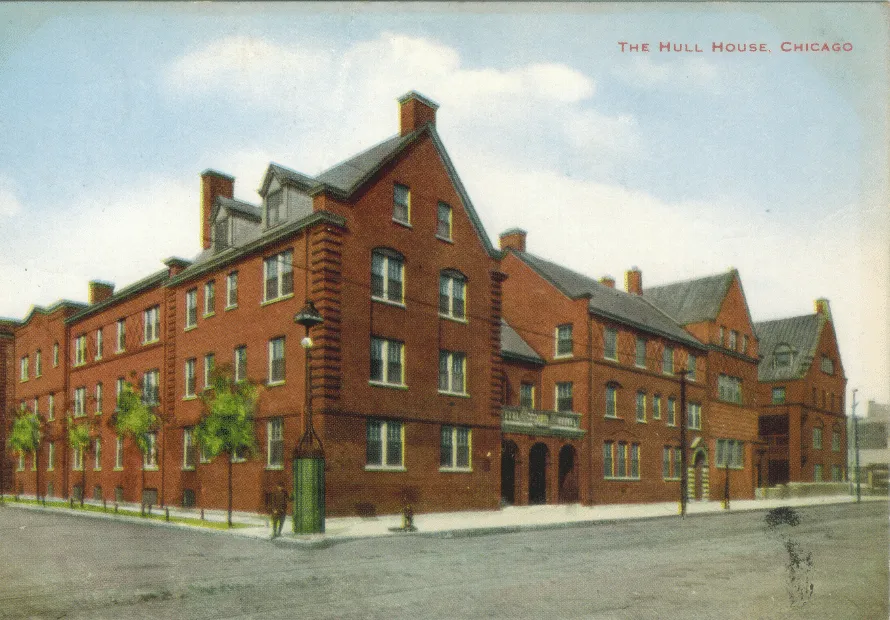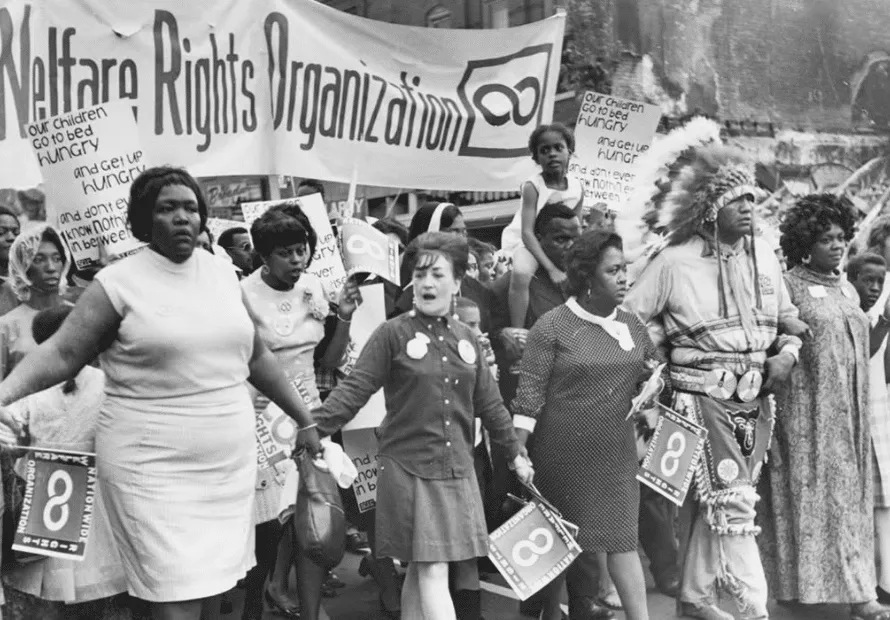The History of Social Work in the United States
The History of Social Work in the United States
The United States is blessed with a well-developed safety net of social services, designed to support our citizens across a broad spectrum of needs. Key to the success of that safety net is the profession of Social Work, encompassing deep compassion and dedication to the betterment of society and the uplifting of human dignity. Social workers have been at the forefront of positive social change since the beginning of the profession, caring for those in need, and working for the betterment of the human condition. In recognition of Social Work Awareness Month, it’s a good time to ask: how did we get to where we are today?
Social Work may be one of the oldest professions. Historically, the Hammurabi Code, established around 1754 BCE in ancient Babylon is one of the earliest examples of a legal code that addressed social welfare. Along with establishing law and order, it also addressed penalties for failing to care for the poor, widows, orphans, and the disabled, and providing food and shelter for those in need. These laws set out penalties for failing to care for those in need, as well as standards for providing food and shelter for the impoverished and most vulnerable.
Additional roots of Social Work come from religious institutions as far back as medieval times, when churches viewed charity as their moral duty. Churches provided care for the poor, sick, orphaned, and the elderly through giving money, or alms, to the poor, the establishment of alms houses or shelters for the poor, and hospices for the sick.
The first organized effort to address societal inequities was embodied in the Elizabethan Poor Laws in England in the 16th century. This was the first movement toward a structured, publicly supported system of support for the poor. Local parishes were responsible for providing services, supported by taxes on property. Clothing, food and money were supplied to the needy in their homes, and workhouses were established for those who could not care for themselves. Judgements were harsh against those who appeared able to work but were unemployed, while compassion was offered to those considered deserving such as the elderly, infirm, and orphans.
By the 19th century, the Charity Organization Society (COS) was established in England and the United States, bringing organization to a previously unorganized and often chaotic network of charitable efforts. Within COS, Mary Ellen Richmond is credited with developing the field of social casework, a more structured approach to understanding and addressing individual needs. She developed a framework for understanding the relationship between the individual and their environment, which later became known as the “casework method,” assessing those in need of assistance, and individualizing services to meet those needs, laying the foundation for the casework model still practiced today. While sometimes seen as judgmental and moralistic, this system helped to prevent duplication of services and preserve resources. COS also focused on standards and training, moving volunteers into the realm of professionalism.
By the end of the 19thcentury and into the early 20th century, social work evolved into a more formalized profession, as rapid social change was taking place in the country. The Industrial Revolution, large scale immigration, and urbanization brought many challenges and societal reforms in the United States. As a result, social work became more specialized, responding to the many emerging communities and their needs. The establishment of ethical practice and formal education for social workers contributed to a more recognized and respected profession.

The Settlement House movement in the late 1800’s brought about the concept of community based social work. Settlement houses were community centers offering a variety of services, located in impoverished urban neighborhoods where social workers lived and worked among the people they served. The most famous of these was Hull House in Chicago, established by Jane Addams and Ellen Gates Starr in 1889. Hull House became a model for other settlement houses across the country, notably the Henry Street Settlement House in New York City, founded by Lillian Wald, a nurse and social reformer. She was a pioneer in public health nursing and worked to improve healthcare access for poor and immigrant communities. Settlement Houses provided services addressing social, health, educational and economic needs of the community. They advocated for social reform, labor laws, improved housing and health. And the settlement house workers believed in the participation of the community in decision making, empowering people to take control of their own lives.
In 1898, the formal establishment of social work education emerged in the form of The New York School of Philanthropy, later to become Columbia University School of Social Work. A formal curriculum was established that encompassed both classroom education and hands-on fieldwork experience, a format that has endured to this day. Throughout the early 20th century, Social Work education programs expanded across the United States, with Social Work Schools at universities offering specialized training in areas such as medical social work, geriatrics, psychiatric social work, and child welfare. Ultimately, licensing and certification of social workers solidified the legitimacy of the profession requiring specific knowledge and skills.
As the Industrial Revolution progressed, social workers were at the forefront of the movement for social justice in many arenas. They fought for better working conditions for industrial workers and played a key role in advocacy for labor reforms. They worked to eliminate child labor, set minimum age requirements for work, and limits on the number of hours children could work. They also advocated alongside labor unions for fair wages, safe working conditions, and reasonable working hours.
With the growth of the profession, the importance of social work in times of crisis throughout history has been critical. During the Great Depression of the 1930’s, social workers were called upon to respond to the destitution of many who suffered economic collapse. President Roosevelt’s New Deal programs enlisted social workers to support Social Security, unemployment insurance and public assistance, expanding their role in public policy. Direct assistance, case management skills, and advocacy for public policy reform further entrenched social work in the realm of government programs.
World War II brought social work into the realm of the military and veteran’s affairs, offering services to soldiers suffering the effects of service in wartime. Social workers provided support to soldiers dealing with the psychological effects of combat, assisted families coping with the absence of loved ones, and helped veterans reintegrate into civilian life after the war. Counseling and therapy for soldiers experiencing combat-related trauma, laid the groundwork for the development of post-traumatic stress disorder (PTSD) treatment. The advancement of these mental health skills helped to accelerate clinical social work as a specialized field of practice and forged an alliance between social workers and psychologists and psychiatrists.

The Civil Rights Movement of the 1950’s and 1960’s offered another opportunity for social workers to support the righteous cause of social justice, advocating for racial equality and desegregation. Social workers could be found in community organizations, working with churches, registering voters, advocating for legislation, and supporting individuals and families impacted by violence, discrimination, and poverty. This commitment to social justice remains a core value of the profession today. In the1960’s President Lyndon Johnson’s War on Poverty expanded programs aimed at eliminating poverty and racial discrimination. The establishment of Medicaid and Head Start once again expanded the role of social work in support of these large public programs.
Photo Caption: National Welfare Rights Organization activists marching in Washington, DC, May 1968
Social Workers have traditionally been on the front lines of crisis intervention in response to disasters, whether natural disasters like earthquakes, hurricanes and wildfires, or traumas caused by plane crashes, school shootings, or accidents. Social workers help survivors access emergency services, find shelter, and secure basic necessities. They support those experiencing trauma and grief, and work with communities to coordinate services, rebuild communities, and facilitate recovery.
The COVID-19 Pandemic was one of the most comprehensive efforts for social workers, supporting individuals and institutions under the most difficult circumstances, often at risk to their own health. The massive effort to provide support to vulnerable populations necessitated using creative methods, and the opportunity to develop new ways of reaching those in need. The use of technology for Telehealth was expanded and has also resulted in using this tool to reach rural populations who have previously not had access to many services. Long term effects of the pandemic are still being felt in many communities, especially in the health arena, and many still suffer from economic, social, and mental health vulnerabilities. Social workers still have much to do to support these populations.
As we move into the future, social work will continue to adapt and expand to meet the needs of an ever more complex society. The inclusion of technology in the future of social work presents both opportunity and challenge. With attention to ethical issues, technology, including AI, can be helpful in streamlining services, but there are also risks to consider and manage.
As the needs of specific populations have emerged, social work has addressed them. New specializations will continue to emerge, as they have throughout history. Specialties in services for the elderly; individuals with physical, developmental, or mental health challenges; school social work; hospital social work, hospice care, healthcare advocacy; criminal justice; immigrant and refugee services; veterans’ services; child welfare, and other targeted services have been established with specialized skills as needs have emerged. Social work is an adaptive and dynamic profession, dedicated to meeting the needs of vulnerable populations in a changing society. As it always has, the field of social work will continue to be responsive to the changing society we live in and will continue to reflect the values of compassion and dedication to lifting the human spirit.
“Social work is a profession of hope, where we have the privilege of witnessing the human spirit’s resilience and capacity for growth.” – Nicole Bromfield, Social Worker.








